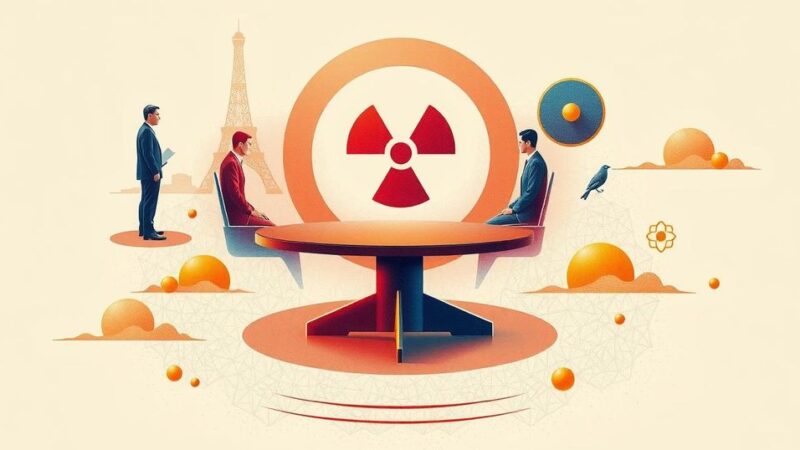The fall of Damascus has marginalized Russia and Iran while empowering Turkey as a leading external actor in Syria. High-stakes discussions in Doha among major powers revealed profound concerns over Assad’s refusal to negotiate, ultimately becoming meaningless following his regime’s collapse. Turkey now stands poised to play a vital role in shaping Syria’s future governance amid a chaotic regional landscape.
The recent fall of Damascus has significantly altered the dynamics of power in Syria, sidelining Russia and raising Turkey’s profile as a key player in the region. Celebratory gunfire erupted across liberated areas of Syria, starkly highlighting the impotence of Iranian and Russian diplomats at a dialogue forum in Doha held just hours before the regime’s collapse. The discussions among major external powers took a discerning tone as they expressed concerns over President Bashar al-Assad’s rigidity to engage in necessary dialogues, particularly with Turkey, which has been backing military forces poised against Damascus.
Notably, Russian officials revealed that Assad remained obstinate, prompting fears among the diplomats regarding his capability to maintain control. The urgency of the situation escalated with reports confirming Assad’s regime had fallen, rendering the assembled diplomats completely irrelevant within mere hours. Russian Foreign Minister Sergei Lavrov faced intense questioning regarding Russia’s decade-long involvement in Syria, highlighting the frustration stemming from the unforeseen rapid developments on the ground.
When pressed about the possibility of a legitimate democratic transition, Lavrov’s responses were evasive as he diverted attention to U.S. actions in Syria, illustrating his discomfort regarding Russia’s diminishing influence. Concurrently, Iranian Foreign Minister Abbas Araghchi appeared visibly troubled, realizing that the prospects for Assad’s survival were bleak as Iran’s strategic objectives in Syria unraveled. Meanwhile, Turkey’s foreign minister, Hakan Fidan, positioned Turkey as the potential principal benefactor in this new scenario, equipped with the necessary resources to help establish a credible governance framework for the Syrian populace.
Turkey’s leverage in the situation offers an opportunity for a renewed Syrian governance model, reflecting the aspirations of Syrians for stability and sovereignty. This monumental shift underscores the volatility in the region and the failed attempts of Russia and Iran to exert control amid rapidly changing realities.
The geopolitical landscape in Syria has long been influenced by external powers, primarily Russia and Iran, who supported the Assad regime against opposition forces. However, Turkey’s involvement has grown increasingly significant over the past few years as it has backed various Syrian militias in its quest for regional influence and security. The recent fall of Damascus marks a pivotal moment where these dynamics shift dramatically, revealing the fragility of Russian and Iranian positions and highlighting Turkey’s potential for increased political influence in post-conflict reconstruction efforts in Syria.
The fall of Damascus has profound implications for the geopolitical chessboard in Syria, presenting an opportunity for Turkey to ascend as a pivotal actor while simultaneously marking a decline in the power and relevance of both Russia and Iran. This transition reflects a significant shift towards potential Turkish-led governance, which could align more closely with the aspirations of the Syrian people. As the landscape evolves, the necessity for a coherent strategy to form a stable and representative government in Syria becomes increasingly urgent.
Original Source: www.theguardian.com





